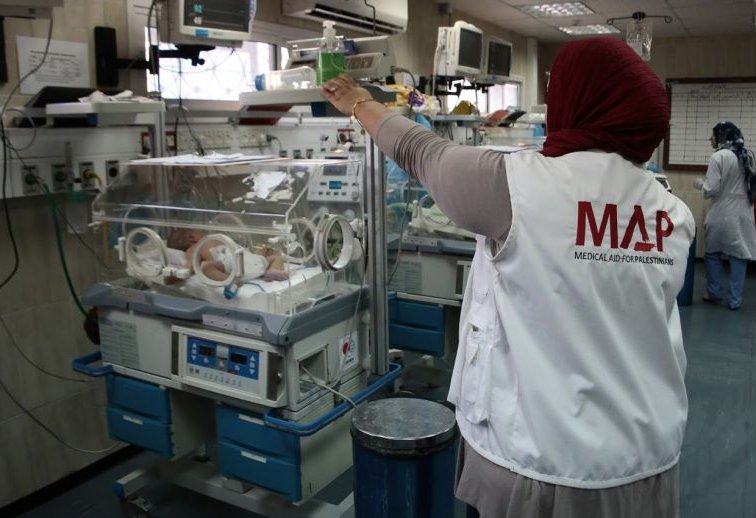UN: “Gaza health sector is collapsing” amid international inaction

The UN Office of the Coordinator for Humanitarian Affairs (OCHA) has called for international support to respond to casualties arising from Israel’s use of force in the context of the continuing ‘Great March of Return’ protests. Since 30 March, 179 Palestinians (including 29 children) have been killed, the majority during the demonstrations. More than 19,000 Palestinians have been injured, with half of these hospitalised:
“The large number of casualties among unarmed demonstrators who did not pose an imminent threat of life or deadly injury to Israeli soldiers, including a high percentage of demonstrators hit by live ammunition, has raised concerns about the excessive use of force.”
OCHA warn of growing despair in Gaza, with these casualties entering a health system facing chronic challenges:
“Gaza’s health sector is collapsing in the wake of the now 11-year blockade, the deepening intra-Palestinian political divide, the energy crisis, inconsistent and reduced payment of public sector staff, and growing shortages in medicines and disposables.”
With hospitals facing high casualties and dwindling resources, some 8,000 surgeries, including some critical cases, have been postponed. These delays can negatively impact patients’ physical and psychological health and lead to further health complications.
OCHA has appealed for $21 million (£16 million) to fund trauma management and emergency healthcare interventions, including for public hospitals managing high numbers of patients needing complex inpatient care and post-operative rehabilitation.
Of critical concern to Gaza’s health system is the availability of emergency fuel. Chronic electricity shortages have left hospitals and clinics running on back-up generator power for up to 20 hours per day, on fuel provided by the UN. Funding for this has dried up, however, with stocks set to run out within days. OCHA reports:
- 14 public hospitals are running at reduced capacity in key services including elective surgery, sterilisation and diagnostics;
- 4,800 patients require access daily to lifesaving or life-sustaining healthcare with a constant supply of electricity
- 300 of these patients need constant connection to lifesaving medical equipment such as ventilators, dialysis machines, incubators and anaesthetic equipment
OCHA further reports that any disruption or electricity cut puts patients at immediate risk of brain damage or death. Just $4.5 million (£3.4 million) is needed by the UN needed to provide fuel to sustain services until the end of the year.
Gaza’s ‘eviscerated’ economy
Meanwhile, UNCTAD, the UN body responsible for trade, investment and development issues, issued its annual report on the economy of the oPt. In it, the agency warns of accelerating de-development of Gaza, stating that Israel’s 11-year blockade has “eviscerated Gaza’s economy and productive base and reduced the Strip to a humanitarian case of profound aid-dependency.” Gaza’s per-capita income is now 30% lower than the start of the century, and poverty and food insecurity are rife with 80% of people reliant on some form of international aid.
These conditions have a profound effect on the health of Gaza’s population, with UNCTAD reporting that “enduring pressure and deprivation of basic human, social and economic rights inflict heavy toll on Gaza’s psychological, social and cultural fabric as manifested by widespread psychological trauma, post-traumatic stress disorder, desperation, high suicide rates and drug addiction.” According to UN figures, 225,000 children – more than 10% of Gaza’s population – required psychological support in 2017.
The report highlights that international efforts to address the situation have failed to reverse this trend, stating: “Efforts at revival have been feeble and all interventions necessarily focused on reconstruction and humanitarian relief, leaving few resources for development or resuscitating the productive base.”
UNCTAD further outline the action needed to provide sustainable economic recovering in Gaza, including a complete lifting of the blockade; political, fiscal and economic reunification with the West Bank; urgent overcoming of the electricity crisis; and enabling Palestinians to develop offshore natural gas fields.
Related content


